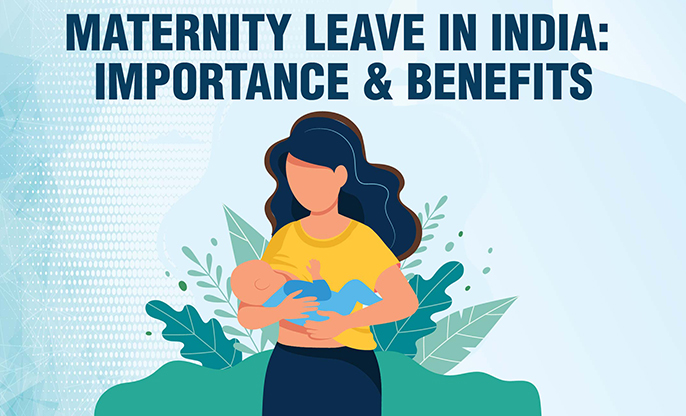
Pregnant women have specific rights and protections in the workplace when it comes to maternity leaves. The primary legislation governing these rights is the Maternity Benefit Act, 1961, which was amended in 2017 to provide enhanced benefits. These rights are designed to ensure that pregnant employees can take time off to care for themselves during pregnancy and to recover after childbirth without facing discrimination or negative consequences from their employers.
It's important for pregnant women to be aware of their maternity rights with their employers. So, presently you a list of your rights for you to be aware.
- Maternity leave: Pregnant
employees are typically entitled to maternity leave, which allows them to
take time off from work during pregnancy, and after childbirth. The
duration of maternity leave can vary by country and employer, but it is
usually designed to accommodate the physical and medical needs of the
pregnant woman. In India, it is offered for 6 months.
- Paid maternity
leave: In India, employers are directed to provide paid
maternity leave, which ensures that pregnant employees receive at least a
portion of their regular salary during their maternity leave i.e., for
complete 6 months.
- Job protection: In India,
pregnant women have job protection during their maternity leave. This
means that their employers cannot terminate their employment due to
pregnancy or maternity leave. Neither can they transfer the employee to
any other state or country.
4.
Right to resume work: After maternity
leave, women have the right to return to the same job they held before going on
leave or to a similar job with the same terms and conditions of employment.
This is to ensure that there is no adverse impact on their career due to
maternity.
- No discrimination: Pregnant
employees should not face discrimination in the workplace because of their
pregnancy. This includes not being passed over for promotions, raises, or other
prolific opportunities due to pregnancy, and not being subjected to harassment
or hostile work environments.
- Reasonable accommodations: If a
pregnant employee has a medical condition related to pregnancy that
affects her ability to perform her job, employers are often required to
make reasonable accommodations. This might include adjustments to her work
duties, schedule, or timings to ensure her health and safety.
- Pregnancy-related
medical appointments: Pregnant employees have the right to attend
prenatal medical appointments. Employers are typically required to provide
reasonable time off for these appointments without deducting pay or
penalizing the employee.
- Breastfeeding
accommodations: In some places, employers are required to provide
accommodations for breastfeeding mothers, such as a private space to pump
breast milk and time for pumping during the workday.
- Creche facility:
Establishments with 50 or more employees are required to provide a creche
facility within a prescribed distance from the workplace. Female employees
are allowed to visit the creche up to four times a day, during work hours.
- Rights for adoptive mothers and commissioning mothers: The Maternity Benefit (Amendment) Act, 2017 also extended maternity leave benefits to adoptive mothers and commissioning mothers (biological mothers in surrogacy arrangements).














